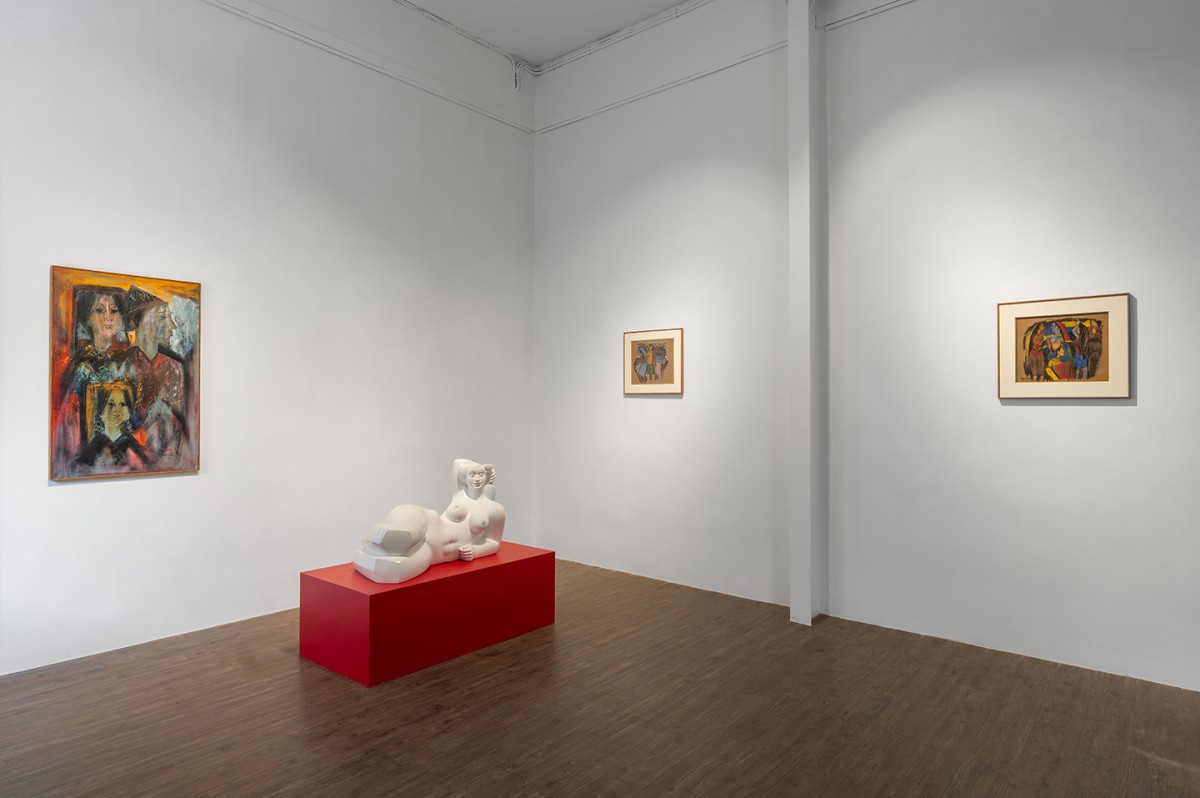
LONGING BELONGING
September 12 - October 19 , 2024
Amrita Sher-Gil, Dhruva Mistry, Gieve Patel, Haku Shah, Jogen
Chowdhury
Laxman Pai, Maqbool Fida Husain, Mohan Samant, Paramjit
Singh, Piraji Sagara, Shiavax Chavda, Sudhir Patwardhan, VR Patel
Featuring
some of India’s most important modernist painters, this exhibition covers a
specific spectrum of impulses and attitudes, from cultural and material
rootedness at one end of the scale (Belonging) and, at the opposite end, yearning,
dissatisfaction, a feeling that life is elsewhere (Longing). M.F. Husain’s
bathers and village boy are comfortable in their own skin, not caught between
two places, two times, two desires. Shiavax Chavda brings us a different kind
of rooted belonging, related to classical art and worship, depicting a Bharatanatyam
performance against the backdrop of a temple gopuram, perhaps that of the
Brihadeshwara temple of Thanjavur.
In
contrast, the stillness of the women in Haku Shah’s canvas suggests ossified
patriarchal traditions. The subject of Sudhir Patwardhan’s portrait appears to
have wishes that are unexpressed, perhaps inexpressible, while the agony
evident in Amrita Sher-Gil’s pining woman might have a more specific root.
Dhruva Mistry’s reclining nude is the most specific artwork in the show:
manifestly a version of the centuries-old tradition of woman as object of
sexual craving.
Paramjit
Singh and Gieve Patel craft celebratory landscapes, the former depicting a
grassy stretch of land from the foothills of the Himalayas where he has for
decades found his greatest inspiration. Patel, who was fascinated in his
childhood by wells located near Nargol, his native village in Gujarat, began
painting them decades later based on memories of staring into shallow wells
which reflected fronds of trees overhead.
If there is
some nostalgia in Patel’s painting, it is heightened in the work of Mohan
Samant, an émigré artist whose oeuvre frequently evokes his native land. Fisherman
and His Temple featuring a small rowboat, a shrine atop a hill and a
resting cow might well involve memories of a childhood trip outside Bombay, the
city of Samant’s birth and upbringing.
Piraji
Sagara and Vinod Ray Patel are perhaps the least known artists in the group but
their contributions are central to the exhibition. Patel’s canvas captures the
historical inflection point marked by Beatlemania, psychedelia and the hippie
trail, a paradoxical moment when west looked east while east looked west.
Sagara’s composition of flying birds calls to mind aerial topographical views,
conjuring images of migratory birds travelling between two poles, never fully
at home in one place, or maybe equally at ease in both as well as the wide
space in-between.
Girish Shahane